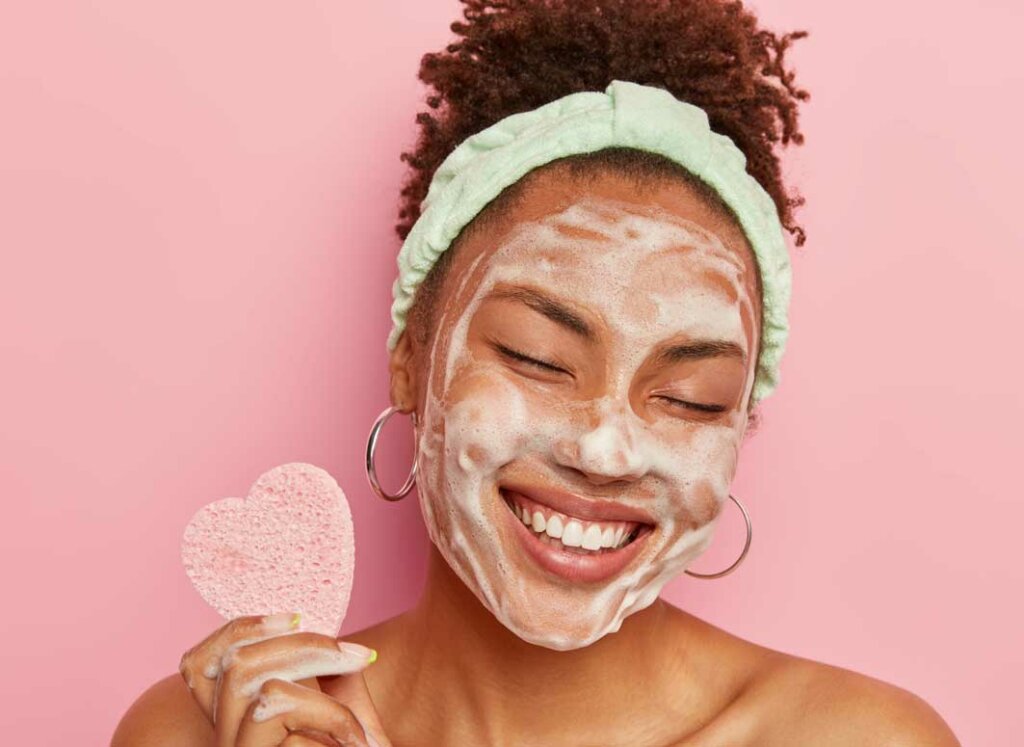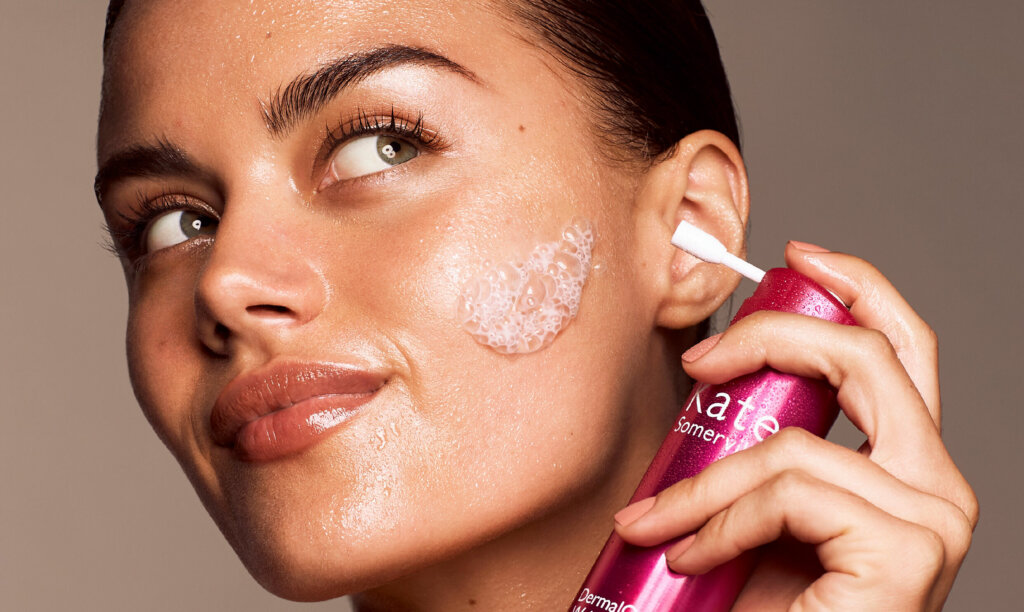We all know the saying, “look good, feel good”. But have you ever stopped to consider the deeper connection between skincare and mental health? It turns out that taking care of your skin not only improves your physical appearance but can also have a profound impact on your mental well-being.
In this article, we will explore the fascinating relationship between skincare and mental health, the science behind it, and practical tips for incorporating skincare into your mental health care routine.
Understanding the Connection Between Skincare and Mental Health

When it comes to skincare, it’s not just about having flawless skin or following the latest beauty trends.
[ruby_related heading=”More Like This” total=5 layout=1 offset=5]
Skincare has a profound impact on our mental health because our skin is not just an outer shell, but a reflection of our inner well-being. When our skin looks and feels healthy, it can boost our self-esteem and confidence, leading to improved mental well-being.
But what exactly is the connection between skincare and mental health? Let’s delve deeper into this fascinating topic.
The Psychological Impact of Skin Conditions
Let’s face it, dealing with skin conditions can be emotionally challenging. Conditions like acne, eczema, or psoriasis can affect our appearance, leading to feelings of self-consciousness, embarrassment, and even social anxiety.
The psychological impact of these skin conditions can be profound, often leading to a negative impact on our mental health.
Imagine waking up every day with a face covered in acne. The constant battle to cover up blemishes, the fear of being judged by others, and the internal struggle with self-acceptance can take a toll on our mental well-being.
It’s not just about the physical discomfort; it’s the emotional burden that comes with it.
However, by understanding the relationship between skincare and mental health, we can take steps to improve our skin, manage skin conditions, and ultimately enhance our emotional well-being.
The Role of Self-Care in Mental Health
Skincare can also be viewed as a form of self-care, which plays a vital role in maintaining good mental health. Taking the time to care for our skin can provide a sense of relaxation, promote self-love, and reduce stress.
Engaging in a skincare routine can offer valuable moments of self-reflection, allowing us to reconnect with ourselves and be present in the moment.
Imagine this: you’re standing in front of a mirror, gently massaging a luxurious cleanser into your skin. As you do so, you take deep breaths, inhaling the soothing scent and exhaling any tension or worries.
The act of caring for your skin becomes a ritual, a sacred moment dedicated solely to yourself.
During this time, you become aware of the sensations on your skin—the coolness of the water, the gentle touch of your fingertips. You become attuned to the present moment, letting go of the stresses of the day.
This simple act of self-care can have a profound impact on your mental well-being, allowing you to recharge and rejuvenate.
Moreover, self-care goes beyond the physical act of skincare. It’s about prioritizing your well-being and making yourself a priority.
By engaging in a skincare routine, you are sending a message to yourself that you are worthy of love and care. This act of self-love can boost your self-esteem, improve your mood, and contribute to a positive mindset.
So, the next time you indulge in a skincare routine, remember that you are not just taking care of your skin, but also nurturing your mental health.
Embrace the connection between skincare and mental well-being, and let it guide you towards a healthier, happier you.
The Science Behind Skincare and Mental Health

Now that we understand the emotional impact of skincare, let’s explore the scientific side of this fascinating relationship.
The Stress-Skin Connection
Did you know that stress can wreak havoc on your skin? When we’re stressed, our bodies produce an excess amount of the hormone cortisol, which can lead to skin issues such as acne, dryness, and even premature aging.
Additionally, stress can impair our skin’s natural protection mechanisms, making it more vulnerable to environmental damage.
But how exactly does stress affect our skin? When cortisol levels rise, it triggers inflammation in the body, including the skin. This inflammation can disrupt the skin’s natural balance, leading to various skin conditions.
Moreover, stress can also affect the skin’s ability to retain moisture, resulting in dryness and dullness.
Fortunately, there are ways to mitigate the negative effects of stress on our skin.
By incorporating stress-management techniques into our daily lives, such as meditation, exercise, and adequate sleep, we can not only improve our mental well-being but also promote healthier, more radiant skin.
Furthermore, practicing self-care rituals like skincare routines can serve as a form of stress relief. Taking the time to cleanse, moisturize, and pamper our skin not only nourishes it but also provides a moment of relaxation and rejuvenation for our minds.
Hormones, Skin, and Mental Health
Hormones play a significant role in both our skin health and mental well-being. Fluctuating hormone levels during puberty, pregnancy, or menopause can lead to skin issues like acne or eczema.
Moreover, hormonal imbalances can disrupt our emotional balance, leading to mood swings, anxiety, or depression.
When it comes to the skin, hormones influence the production of sebum, a natural oil that keeps the skin moisturized. Imbalances in hormone levels can cause an overproduction of sebum, leading to oily skin and clogged pores.
This, in turn, can contribute to the development of acne and other skin problems.
Additionally, certain hormones, such as estrogen, play a crucial role in maintaining the skin’s elasticity and firmness. As estrogen levels decline with age, the skin may become thinner, drier, and more prone to wrinkles.
Understanding the link between hormones, skin, and mental health can empower us to seek appropriate medical or holistic interventions to balance our hormones, thus improving both our skin and mental well-being.
For instance, if hormonal imbalances are causing persistent skin issues or affecting our emotional well-being, consulting with a dermatologist or endocrinologist can provide valuable insights and potential treatment options.
Moreover, adopting a healthy lifestyle that includes a balanced diet, regular exercise, and stress reduction techniques can help regulate hormone levels and promote overall well-being.
In conclusion, the intricate relationship between skincare and mental health goes beyond surface-level concerns. By delving into the science behind this connection, we can gain a deeper understanding of how our mental well-being impacts our skin and vice versa.
Taking care of our skin and nurturing our mental health are not separate endeavors but rather interconnected aspects of our overall wellness.
The Therapeutic Benefits of a Skincare Routine

Skincare goes beyond the beauty aspect; it can also be a therapeutic practice that enhances our mental well-being.
When it comes to skincare, it’s not just about achieving flawless skin or following the latest beauty trends. Engaging in a skincare routine can be an opportunity to practice mindfulness and be fully present in the moment.
As we cleanse, moisturize, or apply a face mask, we can focus on the sensations, textures, and scents, allowing ourselves to relax, unwind, and let go of any troubling thoughts.
Practicing mindfulness through skincare can serve as a form of meditation, offering us a calm and rejuvenating experience that benefits both the skin and the mind.
It’s a chance to slow down and pay attention to ourselves, nourishing not only our skin but also our inner well-being.
But the benefits of a skincare routine don’t stop at mindfulness. Establishing a skincare routine can have a positive impact on our mental well-being by promoting discipline and structure in our daily lives.
Having a set routine can provide us with a sense of stability and control, which can be particularly beneficial during challenging times.
With a skincare routine, we create a dedicated time for self-care, and this act of taking care of our skin daily can serve as a gentle reminder to prioritize self-care and nourish ourselves, both physically and mentally.
It’s a simple yet powerful way to show ourselves love and kindness, boosting our overall well-being.
Case Studies: Real Stories of Skincare and Mental Health

Let’s delve into the personal experiences of individuals who have witnessed the profound impact of skincare on their mental health.
Skincare is often seen as a way to improve physical appearance, but its effects can extend far beyond that. In fact, many people have found that taking care of their skin can have a positive impact on their mental well-being as well.
Through these case studies, we will explore the transformative power of skincare on mental health.
Overcoming Acne and Anxiety
Sarah, a 23-year-old student, struggled with severe acne throughout her teenage years. Not only did acne affect her physical appearance, but it also took a toll on her mental health.
Sarah experienced low self-esteem, social anxiety, and a deep sense of insecurity.
Feeling trapped in a never-ending cycle of breakouts, Sarah decided to take matters into her own hands.
She researched skincare products, consulted with dermatologists, and developed a consistent skincare routine tailored to her skin’s needs.
As Sarah diligently followed her new skincare routine, she started to notice small improvements in her skin. The acne began to clear, and with it, her anxiety started to fade away as well.
Sarah’s newfound confidence allowed her to engage more freely in social situations, and she no longer felt the need to hide behind layers of makeup.
Not only did Sarah’s skin improve, but her mental well-being also underwent a profound transformation. The once self-conscious and anxious young woman became a beacon of self-assurance and positivity.
Skincare became more than just a means to clear her acne; it became a form of self-care that nurtured her mental health.
Eczema and Emotional Health
David, a forty-year-old father, battled with chronic eczema for most of his adult life. The constant itchiness, redness, and flaking caused him immense physical discomfort, but it also affected his emotional state.
Living with eczema meant that David was constantly aware of his skin’s condition. The visible signs of inflammation made him self-conscious and often led to feelings of embarrassment and shame.
The emotional toll of eczema started to seep into other aspects of his life, affecting his relationships and overall happiness.
Determined to find a solution, David sought help from a dermatologist who specialized in treating eczema.
Together, they developed a personalized skincare routine that focused on gentle cleansing, moisturizing, and avoiding triggers that exacerbated his condition.
As David diligently followed his new skincare routine, he began to experience a significant improvement in his eczema. The constant itchiness subsided, and the redness and flaking gradually faded away.
With his physical discomfort alleviated, David found himself feeling less stressed and anxious.
The transformation in David’s emotional well-being was remarkable. He was able to fully enjoy his life and be present for his family without the constant distraction of his eczema.
The newfound peace of mind allowed him to cultivate deeper connections with his loved ones and pursue his passions with renewed vigor.
These case studies highlight the profound impact that skincare can have on mental health. It goes beyond just treating the physical symptoms; it is about nurturing the mind and soul.
Skincare becomes a powerful tool for self-care, enabling individuals to overcome insecurities, boost self-esteem, and embrace their natural beauty.
Practical Tips for Incorporating Skincare into Mental Health Care

Now that we understand the importance of skincare in mental health care, here are some practical tips to help you integrate it into your daily routine:
Choosing the Right Skincare Products
When selecting skincare products, it’s essential to consider ones that meet your specific skin concerns and needs. Consult with a dermatologist or skincare professional to determine which products are best suited for your skin type, whether it’s oily, dry, sensitive, or combination skin.
Remember that what works for one person may not work for another, so it’s essential to find products that are tailored to your unique skin requirements.
Creating a Skincare Routine for Mental Health
Establishing a skincare routine doesn’t have to be complicated or time-consuming. Start by incorporating the basic steps: cleansing, toning, moisturizing, and sunscreen. Consistency is key; try to perform these steps at the same time every day so that it becomes a ritual.
Customize your routine to fit your lifestyle, preferences, and skin concerns. Experiment with different products and techniques to find what brings you the most joy and relaxation.
Remember, taking care of your skin is an act of self-love and self-care. By prioritizing your mental and emotional well-being through skincare, you are investing in a happier, healthier you.
